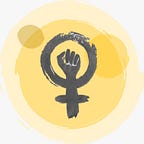In Conversation — A Series about COVID-19, Resilience and GBV (Part 1)
In 2019, the IRC declared the intention to become a feminist organization, partnering with fellow feminist organizations and ensuring that we listen to the expertise of our colleagues in women’s rights organizations around the globe. As one part of this effort, Sophia Ngugi, Senior Technical Advisor for Participation and Women’s Movement Building at the IRC, engaged in a series of conversations with GBV experts in partner organizations to learn about their experiences during the COVID-19 pandemic. The below are Sophie’s reflections on these conversations.
The conversations themselves will be posted over the coming weeks.
Last year, the IRC was challenged to become a feminist organization in not only name but also action. For the Violence Prevention and Response Unit (VPRU), at the heart of this feminist response are our efforts to center women and girls voices and expressed needs, to engage in true partnership, and take an intersectional approach that sees women and girls in all their diversity. As the first Senior Technical Advisor for Participation and Women’s Movement Building for the VPRU, confronting the challenge to become feminist is my job. And I am never more energized to make the IRC a better, more feminist organization, than when I get to hear directly from the women’s organizations that we partner with, as I did in recent discussions with partner organizations on the Role of Women’s Movements in COVID-19 response.
Joining me in these discussions of how we could take a feminist approach were Happy Ainomugisha (Action for Development, Uganda), Alberta Wambua (Gender Violence Recovery Centre, Kenya), Menna Anwar (El Karama Network, Middle East and Africa) and Harriet Kezaabu, Technical Coordinator for the Women’s Protection and Empowerment (WPE) program in IRC Uganda).These feminist leaders have been at the frontlines of responding to COVID-19, and doing this from a feminist perspective. What does this mean to them, exactly?
To Menna, it is about abolishing long-lasting inequalities and recognizing that we cannot eradicate the corona virus but fall back on the many gains that we have made as we do this. Harriet stressed that there have been a lot of consultations with women and girls about their needs, with procurement and priorities of the organization being informed as much as possible by what women consider priorities. Accountability and communication have been critical because they have allowed the WPE Uganda team to lean on the strength of the partnerships they already have with women and communities to keep responding during COVID-19. For Alberta, being able to respond to women’s voiced needs is key. For example, in responding to the requests of women, her organization, GBVRC provided cash vouchers instead of food hampers at the women’s request.
Over the coming weeks, we will post further conversations with these feminist leaders, talking about COVID-19 and resilience, listening, making and taking space, and more. Reflecting on these conversations, the word “resilience” kept coming to mind: resilience of women, resilience of staff, and resilience in the face of tremendous odds. Resilience is even more necessary in times of challenge — and our partners have been challenged, maybe more now than ever. Being sidelined, asked to “prove” to donors the need for their services through statistics, and dealing with the stress of seeing increased intimate partner violence, child marriage and sexual exploitation and abuse in their communities is bound to take a toll. Being overworked and concerned about colleagues’ self-care, safety and health at the same time as being worried about funding streams is stretching our partners’ resilience nearly to the breaking point.
Despite these and many more challenges, Harriet, Alberta, Menna and Happy all shared with me about the innovation, resourcefulness, and sense of community that the women they serve have shown. These organizations and programs are at the front line to listen to women and girls and respond to their needs with compassionate and quality programming. These organizations and the women they serve are resilient together.
The truth is that women should not have to be this resilient and these feminist organization partners should not have to face these barriers. The global humanitarian community needs to better support feminist organizations to respond to all types of crises, including COVID-19. The partners call for not only emergency funding, but also flexibility in funding, including for use of PPE and other support so that they can respond specifically to COVID-19, as well as investments in the psychosocial wellbeing of women and girls, including staff working at these women’s rights organizations.
I invite you to read all of the conversations in this series and then take seriously the challenges our partners have and requests they make.
These conversations were undertaken as part of the Building Local Thinking Global (BLTG) project, which is funded by the US Government.
